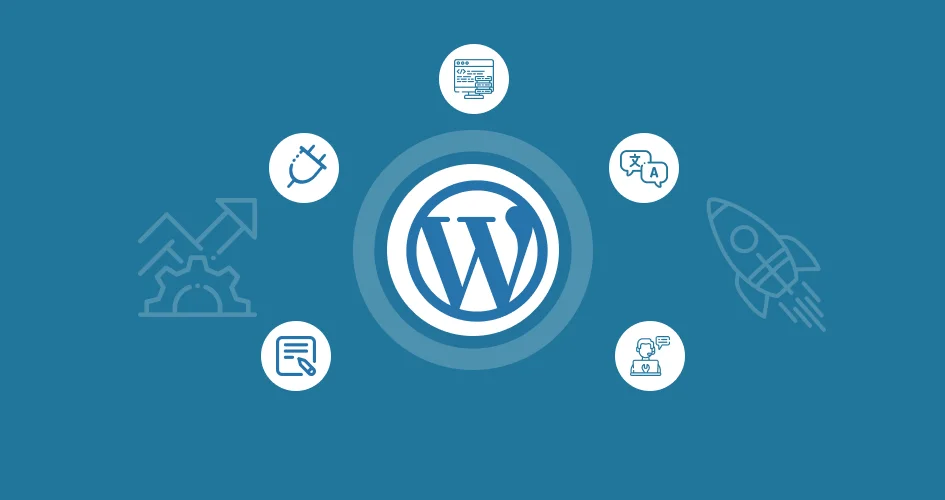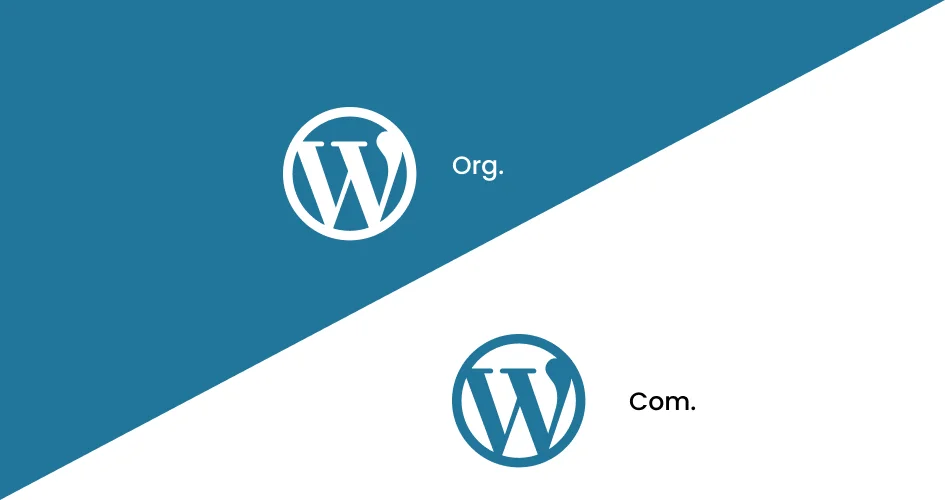Content Management Systems (CMS) play a crucial role in building and managing websites, providing users with a platform to create, edit, and organize digital content.
Two popular CMS options, WordPress and Drupal, stand out in the market, each with its own strengths and weaknesses.
In this article, we will explore the key differences between WordPress and Drupal to help you make an informed decision when choosing the right CMS for your website.
Let’s get started!
What Is WordPress?
WordPress is an open-source Content Management System (CMS) that powers a significant portion of websites on the internet.
Initially launched in 2003 as a blogging platform, WordPress has evolved into a versatile and widely used CMS, serving a diverse range of purposes.
It is built on PHP and uses a MySQL database, providing a user-friendly interface for website creation and management.
What Is Drupal?
Drupal is an open-source CMS known for its flexibility, scalability, and robust customization capabilities.
Launched in 2001, Drupal is written in PHP and uses a MySQL database.
It is particularly favored for building complex and high-traffic websites, catering to the needs of enterprises, government organizations, and large-scale projects.
Drupal Vs. WordPress: A Comparison
-
WordPress Vs. Drupal: Ease of Use
The ease of use factor refers to how user-friendly a platform or system is, considering its interface, navigation, and overall accessibility for users with varying technical expertise.
WordPress
WordPress is renowned for its user-friendly interface, making it an ideal choice for beginners.
The platform boasts a vast community and an extensive library of plugins and themes, allowing users to easily customize their websites without technical expertise.
The intuitive dashboard and straightforward navigation make content creation and management a breeze.
Drupal
Drupal, on the other hand, has a steeper learning curve compared to WordPress.
It is a more powerful and flexible system, but its complexity may be overwhelming for users without technical skills.
While Drupal offers a high level of customization, it may not be the best option for those looking for a quick and easy setup.
-
WordPress Vs. Drupal: Flexibility and Customization
Flexibility and customization involve the ability to tailor a system to specific needs.
A platform with high flexibility allows users or developers to make extensive modifications and adjustments to suit individual requirements.
WordPress
WordPress is widely known for its flexibility and scalability.
With a vast repository of plugins and themes, users can add functionalities and change the look of their websites with just a few clicks.
The platform is suitable for various types of websites, from blogs and portfolios to e-commerce and business sites.
Drupal
Drupal is a robust and highly customizable CMS, making it suitable for complex websites and applications.
It excels in handling large amounts of data and providing advanced customization options.
Developers appreciate the flexibility of Drupal, as it allows them to create tailored solutions for specific requirements.
-
WordPress Vs. Drupal: Performance and Scalability
Performance relates to the speed and efficiency of a system, while scalability considers its capacity to handle increased loads and data volumes without compromising performance.
WordPress
WordPress is known for its performance and speed, especially when optimized with caching plugins and proper hosting.
However, as the website grows in complexity and size, some users may experience performance issues.
It is crucial to choose quality hosting and optimize the website for optimal speed.
Drupal
Drupal is designed to handle high-traffic websites and complex content structures efficiently.
It offers excellent performance and scalability, making it a preferred choice for large enterprises and organizations with extensive content and functionality requirements.
-
WordPress Vs. Drupal: Security
Security is a critical aspect focusing on the protection of a system from potential threats and vulnerabilities.
It involves measures such as encryption, regular updates, and best practices to ensure data integrity.
WordPress
WordPress has a vast user base, making it a frequent target for hackers.
However, the platform has a dedicated security team that regularly releases updates and patches to address vulnerabilities.
Following security best practices, such as using secure plugins and themes, keeping the core software updated, and employing strong passwords, users can enhance the security of their WordPress websites.
Drupal
Drupal has a strong reputation for security.
Its architecture and emphasis on coding standards contribute to a robust security framework.
Regular updates and community-driven security measures help maintain a secure environment.
However, as with any CMS, users must stay vigilant and follow security best practices to safeguard their websites.
-
WordPress Vs. Drupal: Usage
Usage reflects the prevalence and popularity of a platform within the user community.
Higher usage often indicates broader acceptance and a larger user base.
WordPress
WordPress powers a significant portion of the internet, making it the most widely used CMS globally.
Its user-friendly interface and extensive community support have contributed to its popularity, making it an ideal choice for bloggers, small businesses, and non-technical users.
Drupal
Drupal, while not as ubiquitous as WordPress, is still widely used, especially for complex and large-scale projects.
It is the preferred choice for enterprises, government websites, and organizations requiring a highly customized and scalable solution.
Drupal’s usage is prominent in scenarios where advanced functionality and content structures are paramount.
-
WordPress Vs. Drupal: Ecosystem
Ecosystem refers to the collective set of tools, plugins, themes, and third-party integrations available for a platform.
A robust ecosystem enhances the functionality and features a system can offer.
WordPress
The WordPress ecosystem is vast and diverse.
With a massive repository of plugins and themes, users have access to a multitude of options for extending functionality and customizing the look of their websites.
The community-driven nature of WordPress ensures continuous development and innovation, with countless third-party developers contributing to its growth.
Drupal
Drupal’s ecosystem is robust and dynamic, with a focus on flexibility and scalability.
The platform offers a wide range of modules and themes, providing developers with the tools to create tailored solutions.
The Drupal community is known for its technical expertise, making it an excellent resource for those seeking advanced customization and support.
-
WordPress Vs. Drupal: Speed and Performance
Speed and performance gauge how quickly a system responds to user requests and processes information.
Optimizing for speed ensures a smooth user experience, especially for dynamic content.
WordPress
WordPress is known for its speed and performance, especially when optimized correctly.
With a vast library of caching plugins and performance optimization tools, users can significantly enhance their website’s loading times.
Quality hosting choices also play a crucial role in ensuring optimal speed.
However, as the website grows in complexity and size, users may need to implement additional optimization measures to maintain peak performance.
Drupal
Drupal is designed with performance in mind and excels at handling large and complex websites.
Its modular architecture allows for efficient processing of dynamic content, making it suitable for projects with extensive data and complex structures.
Drupal’s performance is generally robust, and its scalability ensures that the platform remains efficient even as the website grows.
-
WordPress Vs. Drupal: Cost
The cost factor involves the financial considerations associated with implementing and maintaining a system.
It includes both initial expenses and ongoing costs such as hosting, licensing, and any additional tools or features.
WordPress
One of the key advantages of WordPress is its affordability.
The platform itself is free and open-source, and many plugins and themes are available at no cost.
However, users should consider additional expenses such as hosting, premium themes, and plugins with advanced features.
Overall, WordPress offers a cost-effective solution, particularly for smaller websites.
Drupal
While Drupal is also open-source, the cost of implementing and maintaining a Drupal website may be higher compared to WordPress.
The complexity and customization options offered by Drupal often require more skilled development, potentially leading to higher upfront costs.
However, for large enterprises and organizations with specific needs, the investment in Drupal’s capabilities may be justified.
-
WordPress Vs. Drupal: SEO (Search Engine Optimization)
SEO pertains to a system’s ability to optimize content for search engines.
Features such as clean URLs, metadata control, and sitemap generation contribute to better search engine rankings.
WordPress
WordPress is inherently SEO-friendly, offering features such as clean URL structures, customizable metadata, and the ability to create SEO-friendly permalinks.
Additionally, the extensive library of SEO plugins, such as Yoast SEO and All in One SEO Pack, empowers users to optimize their content effectively.
The user-friendly interface of WordPress makes it easier for beginners to implement SEO best practices without technical expertise.
Drupal
Drupal, with its flexible content architecture, allows for precise control over SEO elements.
While it may not have as many dedicated SEO plugins as WordPress, Drupal’s SEO capabilities are strong, especially in the hands of experienced developers.
With proper configuration and customization, Drupal can achieve high levels of SEO optimization, making it suitable for projects with specific SEO requirements.
-
WordPress Vs. Drupal: Support
Support encompasses the availability of assistance, resources, and guidance for users.
A strong support system may include forums, documentation, tutorials, and community-driven help.
WordPress
WordPress boasts a vast and active community, providing users with an abundance of online resources, forums, and tutorials.
The extensive community support contributes to the platform’s user-friendly reputation.
Additionally, there is an array of professional support options, including forums, documentation, and third-party services, making it easy for users to find assistance when needed.
Drupal
Drupal also benefits from a dedicated and knowledgeable community, though it may not be as extensive as WordPress.
However, the Drupal community is known for its technical expertise, making it a valuable resource for users facing complex challenges.
Professional support services are available, including Drupal-specific agencies and consultants who can provide assistance for more intricate projects.
-
WordPress Vs. Drupal: Deployment
Deployment involves the process of setting up and launching a system for use.
It considers factors such as ease of installation, configuration requirements, and the technical proficiency needed for successful implementation.
WordPress
WordPress is renowned for its quick and straightforward deployment.
Most web hosting providers offer one-click installations, allowing users to set up their websites effortlessly.
The simplicity of deployment is a significant advantage for those who prioritize a fast and hassle-free setup.
Drupal
Deploying a Drupal website may require more technical expertise, and the process can be slightly more involved compared to WordPress.
However, this complexity is often justified by the platform’s ability to handle intricate content structures and advanced functionalities.
Drupal’s deployment process is well-suited for projects that demand a high level of customization.
Drupal Advantages
- Flexibility and Customization: Drupal excels in providing a high level of flexibility and customization. Its modular architecture allows developers to create highly customized websites tailored to specific needs. This is particularly beneficial for complex projects with unique requirements.
- Scalability: Drupal is well-known for its scalability. It can efficiently handle large volumes of content and traffic, making it a preferred choice for enterprises and organizations with expansive and growing online needs.
- Content Types and Taxonomy: Drupal’s content management system allows for the creation of intricate content types and taxonomies. This is especially useful for websites with diverse content structures, such as those in academia, publishing, or any industry where content categorization is crucial.
- Security: Drupal has a robust security framework and is considered highly secure. Its focus on coding standards, regular security updates, and a vigilant community contribute to creating a secure environment for websites, which is particularly important for enterprise-level applications.
- Multilingual Capabilities: Drupal offers strong multilingual support out of the box. This makes it an excellent choice for websites catering to a global audience, providing seamless translation and localization features.
- Developer-Friendly Environment: Drupal is favored by developers for its developer-friendly environment. It provides a powerful set of tools and APIs, enabling developers to build intricate and sophisticated websites efficiently.
WordPress Advantages
- User-Friendly Interface: WordPress is renowned for its user-friendly interface. It is accessible to beginners, allowing them to create and manage content with ease. The intuitive dashboard and straightforward navigation make it an ideal choice for those without extensive technical knowledge.
- Extensive Plugin Ecosystem: WordPress boasts a vast repository of plugins, offering a wide range of functionalities. Users can easily extend their website’s capabilities by installing plugins, providing solutions for everything from SEO optimization to e-commerce.
- Large Community Support: The WordPress community is one of the largest and most active in the world. This ensures a wealth of online resources, forums, and tutorials. The community support is beneficial for users seeking help or advice on various aspects of WordPress development.
- Versatility: WordPress is highly versatile and suitable for various types of websites. Whether you’re building a blog, an e-commerce site, or a corporate webpage, WordPress can adapt to different needs and industries.
- Quick Deployment: WordPress is known for its quick and straightforward deployment. Many web hosting providers offer one-click installations, allowing users to set up their websites efficiently.
- Constant Updates and Improvements: WordPress is regularly updated with new features, security patches, and improvements. This ensures that websites built on WordPress stay current and benefit from the latest technologies.
Choosing Between Drupal and WordPress
Consider Your Project Requirements
If you require a highly customized, scalable, and complex website, especially for enterprise-level applications, Drupal may be the preferred choice.
For smaller to medium-sized websites, blogs, or projects with a focus on user-friendliness and a vast community support system, WordPress could be more suitable.
Evaluate Your Technical Expertise
If you have a team of experienced developers and technical resources, Drupal’s powerful customization options might be advantageous.
For solo bloggers, small businesses, or those without extensive technical knowledge, the user-friendly nature of WordPress can be a decisive factor.
Assess Long-Term Maintenance
Consider the long-term maintenance requirements of your website.
If you prioritize ease of maintenance and foresee regular content updates, WordPress might be more manageable.
For projects with a long-term vision, where scalability and custom features are paramount, Drupal’s initial learning curve might be justified by its long-term benefits.
Factor In Budget Constraints
WordPress often presents a more cost-effective solution, especially for smaller projects, given its extensive range of free themes and plugins.
For larger, more complex projects with specific requirements, the initial investment in Drupal may be justified by its advanced features and scalability.
Ultimately, the choice between Drupal and WordPress hinges on your specific needs, technical capabilities, and the nature of your project.
Both CMS platforms have their strengths, and understanding these advantages will help you make an informed decision based on your unique requirements.
Wrapping Up
In the WordPress vs Drupal debate, the choice ultimately depends on your specific needs and technical proficiency.
WordPress is an excellent choice for beginners and users looking for a user-friendly, versatile platform with a vast ecosystem of plugins and themes.
On the other hand, Drupal is a powerful solution for complex projects that demand high customization and scalability, making it suitable for large enterprises and advanced web applications.
Consider factors such as ease of use, customization requirements, performance, and security when making your decision.
Regardless of your choice, both WordPress and Drupal offer robust solutions that can help you create and manage a successful website.
If you want to build a custom WordPress website – Let’s design a website that stands out! Let’s build together!





